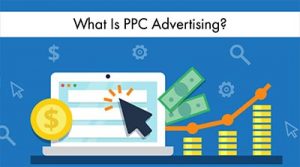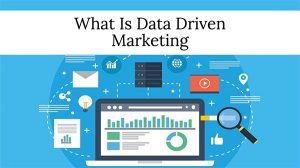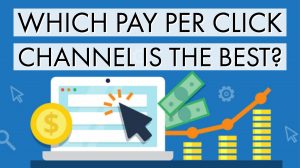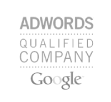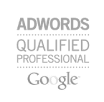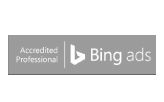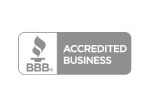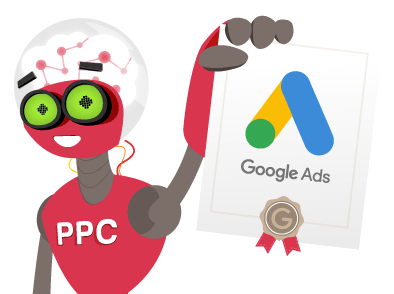Learn the Basics of Pay-Per-Click Marketing
Is PPC marketing really useful? The following are some lessons for PPC University. These courses are designed to provide a comprehensive overview of the PPC platform for the user to get started with it. Pay-per-click marketing is when a business or advertisers pay only when someone clicks on their ads. It can also called a cost-per-click (CPC) ad campaign, or a PPC campaign.
PPC Marketing: Important terms
I will go ahead and talk through some of the key PPC marketing terms you should be aware of.
Search Engine Marketing (SEM): The word SEM refers to the use of search engine marketing part of paid advertising, in order to show search ads in search results.
Cost Per Click (CPC): Show the cost of generating one conversion from a pc advertisement.
Quality Score: A metric used by Google Ads to determine the relevance and quality of ads. Using this score (which takes into account factors such as ad relevance, quality of the landing page, and expected future CTR) determines how much your cost per click will be for each keyword you are bidding on.
Click-Through-Rate (CTR): CTR is the percentage of clicks that a specific ad receives compared to the number of times it was displayed (otherwise know as number of impressions). The higher the CTR, the better the ad is resonating with your audience.
Conversion Rate (CR): CR is the percentage of users who take a desired action (such as submitting a form, calling your business, purchasing, etc..)
Ad Rank: Ad Rank determines where your ad will be positioned on the results page.
Ad Group: Ad Group is a collection of ads that share a similar theme or set of keywords. Grouping ads together can help improve relevance and increase CTR.
Impressions: "Impressions" denotes the frequency with which an advertisement appears on a search engine results page or any other website.
Ad Extensions are additional features that can be added to an ad, such as phone numbers, location information, and sitelinks. Ad extensions can help increase CTR and improve ad rank.
By understanding these important terms, you'll be better equipped to plan and execute an effective ppc advertising campaign.
How Does PPC Advertising Work?
On initial inspection, it may appear that these advertisements are positioned at the top of your search results page because the associated company has paid a substantial amount to Google to have their link listed first on the SERP. PPC, on the other hand, doesn't work that way.
Auctioning
Ad auctioning is a big part of PPC because it keeps the playing field for targeted ads from being the same for everyone. Major search engines use automated "ad auctions" to determine which ads are most appropriate to each keyword or search phrase.
Bidding
When bidding, you establish the maximum amount you are willing to pay per click advertising and for a user to click on your advertisement. If you outbid all other competitors for the same keywords and your ad receives a sufficiently high quality score, it will be displayed as the primary advertisement when an individual searches for those specific keywords.
Setting a Maximum
When setting up PPC ads, you can set a maximum bid or budget cap to limit the amount you spend. If your ad performs better than expected and reaches your limit, it won't show up anymore, and you'll only have to pay the amount your budget allows.
CPM or CPC
When setting up a PPC budget, you can choose between cost-per-click or cost-per-mille (CPM) bidding strategies. CPC charges you when someone clicks on your ad, while CPM charges you for every thousand impressions your ad receives.
CPC is a more popular choice as an ad group it guarantees you pay only for clicks, but CPM can be useful for building brand awareness. CPM ensures that you are charged for visibility, regardless of whether or not anyone clicks on your advertisement. While this guarantees impressions, it can result in inefficient spending if your ad fails to generate clicks.
Real-Time Bidding (RTB)
Real-time bidding (RTB) is a type of programmatic advertising where advertisers bid for ad impressions in real-time auctions.
Like PPC, the highest bidder gets their ad displayed instantly on the website. Real-time bidding (RTB) is regarded as a superior method of bidding in comparison to a static ad auction, as it enables instantaneous auctions across various ad networks, reducing the occurrence of wasted clicks and delivering more tailored advertisements for advertisers.
Bid Adjustments
Using bid adjustment, bid amounts can vary according to performance. You could also adjust them for different categories, such as demographics, languages, etc. Generally, when keywords perform poorly on mobile and on desktop, you can adjust the bids to make them bid X% higher than the normal bid.
Essential Types of PPC Campaigns
Businesses can use several types of PPC campaigns to drive traffic and generate leads. Here are some of the essential ones:
- Paid Search Campaigns: These campaigns are the most common type of PPC advertising and involve bidding on keywords related to your business to appear in search results pages (SERPs).
- Display Campaigns: Display campaigns involve placing ads on third-party websites, such as news sites or blogs, that are part of the Google Display Network.
- Shopping Campaigns: Shopping campaigns are specifically created for e-commerce website selling physical products or goods online. These campaigns allow businesses to showcase their products in search results and on Google Shopping, displaying product images, prices, and descriptions.
- Video Campaigns: Video campaigns involve creating ads that appear on platforms like YouTube, Facebook, or Instagram. These ads can be in the form of in-stream video ads, bumper ads, or sponsored content and can be an effective way to engage with potential customers through visual storytelling.
- App Install Campaigns: App install campaigns are designed to promote mobile apps and encourage users to download and install them. These campaigns can be run on app stores like Google Play, Apple App Store, or mobile ad networks.
By incorporating these essential types of PPC campaigns into your digital marketing strategy, you can reach a wider audience, drive targeted traffic to landing pages on your website, and generate leads for your business.
How PPC Works in Google Ads
Companies create advertisements by choosing keywords for their ads and offering bids. You can advertise for the keywords "Pet Adoption" if they appear in a search engine that matches the keywords you searched for. Google determines the ads which appear in a particular search using the formula or auction. When your ad enters the search engine advertising auction, your site will receive an average score of 1 to 10 based on your relevance to the keyword, the anticipated clickthrough percentage, and the landing page quality.
Campaigns and Ad Groups
Generally, search ads are split into campaigns as well as advertising groups. Both concepts are important because they are fundamentally the basis of your accounts and are simple.
PPC vs. CPC
PPC and CPC are not technically equivalent. PPC is a form of advertising that includes advertising fees. CPC or cost-per-click is the number of dollars spent on one click on an advert.
Tips for Conducting Effective PPC Keyword Research
Keywords for PPC are very time-consuming, though they are important. The most effective search advertising company continually improves and refines its PPC keywords. If you only use keywords when you start a marketing campaign, you probably miss hundreds of thousands of valuable keyword phrases. Please check out this complete guide to keyword research:
- Identify relevant and profitable keywords to attract qualified traffic to your website
- Brainstorm potential keywords and use keyword research tools to find additional ideas and estimate search volume
- Consider search volume, competition, relevance, and intent when choosing keywords
- Organize keywords into ad groups based on relevance to specific product or service categories
- Continually monitor and adjust your PPC keyword strategy based on performance data to improve ROI over time.
Negative Keywords
Negative keywords refer to particular words or phrases that you wish to exclude from triggering the display of your ads in search results. These are typically keywords that are related to your product or service but aren't actually relevant to your business or marketing goals. For example, if you sell luxury watches, you might want to add "cheap watches" or "discount watches" as negatives so that your ad doesn't appear for people looking for less expensive options.
The utilization of negatives can aid in the reduction of costs and the enhancement of your PPC campaigns by preventing your ads from being displayed to irrelevant audiences. By excluding irrelevant search terms, you can concentrate your ad spend on reaching individuals who possess a genuine interest in your offerings. This can increase the click-through rate of your ads, improve the quality score of your ads, and ultimately lead to more conversions and sales.
The Benefits of Using PPC In Your Marketing Campaigns
There are numerous reasons why pay-per-click (PPC) marketing has become a go-to advertising channel for businesses of all sizes. Apart from being a cost-effective option, PPC advertising can quickly be built and managed in-house and doesn't require a significant investment.
This type of advertising is also highly measurable and trackable, which is a rarity in the online advertising model.
Here are some benefits of using pay-per-click marketing:
- Budget flexibility: Advertisers can allocate a budget for their campaigns and quickly scale up their ad spend or pause spending depending on their results.
- Measurable and trackable: With tools such as Google Ads and Google Analytics, you can track and measure the results of your PPC ad campaigns in real time, including clicks, conversions, and impressions.
- Beat your competition: Target keywords associated with your brand or competitors, inhibiting their ability to dominate the search engine results pages (SERPs).
- Marketing data accessibility: The data gathered from campaigns can be used to guide your SEO and content marketing approach.
- PPC ad data can enhance your SEO strategy without necessitating the cessation of your focus solely on SEO. When users search for your keywords, you can see the search intent and display the best ads for them.
- You can start receiving clicks very quickly: After setting up a website or creating an advertisement, these will normally require approval from the platforms but this generally takes only a couple of hours. Once you publish a campaign and receive clicks for a bid you'll appear in the sale very quickly - and if that amount is high. Compared to SEO, PPC allows for a rapid return on investments (ROI).
- PPC ads enable you to focus on your preferred customer demographic by targeting warm leads who have expressed an interest in your product, bypassing the cold audience. Bidders could use the search terms they are accustomed to searching for a solution in their search engines. PPC advertising offers additional specialized keywords and targeted targeting options for past online activities and demographic data. Another great application of PPC ads is retargeting campaigns targeted at users who never purchased after landing on your website.
Quality Counts
Keyword research is crucial for PPC advertising as it helps target the right ad group and customers. However, quality is equally important as the automated process search engines use to rank ads is complex. Quality score is determined by various elements such as landing page, on-site metrics, and ad relevance. A higher quality score results in you paying less per click.
Improving quality scores takes time and requires experimenting with ad formats to find what works. Using relevant keywords in ad copy and landing pages and being specific in campaign targeting can help increase quality scores. The more targeted the ad, the higher the ad appears chances of conversion.
Is PPC Better Than Organic Search Results?
Depending on what you're selling, it can be very hard to get to the top of the search engine results page (SERP). Huge international companies that have been in business for decades will usually always come out on top when it comes to goods that are very competitive. SEO is still important for your website, but it can take months or even over a year to see benefits.
Just look at the top search results for the next thing you Google. Chances are they've all been around for a long time and have a deep history of backlinks and engagement. This is the only digital marketing method that can match with PPC's exposure if you want results quickly. Plus, PPC gives you more options to drive traffic to your site.
For example, you can try out video ads and set up google ads account with a cost-per-view (CPV) ad placement budget for youtube ads on YouTube or other top social media platforms and ad platforms to reach different types of ad groups of possible customers.
PPC advertising can show results in minutes with the right terms and Google ads. It's also easy to change the ad copy quickly to see what works. Your chosen PPC advertising platform will also give you information about engagement and trends and tools to make changes and better performance.
Best PPC Platforms
What is the most fundamental question in online marketing? Evaluating the potential return on investment (ROI) for an advertisement is crucial, and the best way to do this is by checking the site's effectiveness. However, if you can afford to invest more, it might be advisable to try a lesser-known option.
When choosing a platform, it's important to identify relevant keywords and where your target audience spends most their time. Then you can decide where and how much to allocate your budget to.
Google Ads
Google is the go-to platform for search results and PPC advertising, having started with Google AdWords, now known as Google Ads. Due to its extensive usage, Google is suitable for any campaign, including niche products.
How PPC works in Google Ads
Companies create advertisements by choosing keywords for their ads and offering bids. You can advertise for the keywords "Pet Adoption" if they appear in a search that matches the keywords you searched for. Google determines the ads which appear in a particular search using the formula or auction. When your ad enters the auction, your site will receive an average score of 1 to 10, based on your ad rank relevance to the keyword, the anticipated clickthrough percentage and the landing page quality.
Facebook Ads
Facebook excels in targeting your ads to specific demographics. Utilize the data Facebook has to choose the gender, age ranges, regions, cities, interests, and more of the customers you're hoping to reach. Plus, you can run ads on FB and Insta using the same campaign!
Twitter Ads
Twitter's promoted Tweets can spark conversation and generate engagement. To make the most of Twitter, engage in conversations, follow relevant people, and create buzz-worthy ads.
LinkedIn PPC
LinkedIn PPC allows you to target a specific audience based on job titles, industries, and more. It's an excellent platform for businesses that offer team-building activities, corporate retreats, or enrichment activities related to a particular industry.
Instagram Ads
Ideal for visually appealing ads, especially for products that target younger demographics.
Microsoft Advertising (Bing Ads or Microsoft Ads)
Like Google Advertising, the Bing Ads platform allows you to advertise your ads on Facebook and Twitter. In management terms, the platform is quite the same; the significant difference lies in market size and potential reach. . Google search, currently has 89.77 % of all US internet users, Bing 6.99 %, and Yahoo.3.44%. Bing Ads ROI is generally considered more favorable than Google Ads, albeit at lower volumes.
Experiment To Find Out What Works
Achieving success with PPC requires ongoing experimentation and optimization to ensure that your campaigns deliver the best possible results. Here are some tips for optimizing your campaigns:
- Experiment with Different Ad Variations
A/B testing is a technique used to improve campaigns by testing different variations of Google ads. By analyzing the results of each variation, you can gain insights and make data-driven decisions to optimize your campaigns for your target audience.
- Use Specific Targeting
Being as detailed as possible is another way to make your ad better. Target a particular area, time of day, or search network with your ad. The more specific you are with your ad, the more likely it is that people who click on your paid ad will buy from you.
- Monitor and Optimize Your Campaigns
Monitoring your campaigns is essential for optimizing your ads and achieving a positive ROI. Most platforms track metrics like click-through rates and conversion rates for you. Analyzing these metrics regularly helps identify areas that underperform and make data-driven decisions to improve targeting or optimize landing pages.
- Set and Adjust Your Budget
Experiment with ad variations, target ads to specific audiences, monitor campaigns and adjust the budget to improve PPC performance and achieve better results. Automated bidding and budgeting tools can help optimize campaigns based on goals and budgets.
PPC campaign strategies & examples
We will examine three successful PPC campaign ideas that hopefully inspire your efforts to create campaigns.
- Remarketing Campaigns:
Retargeting campaigns represent a potent approach to reaching users who have already engaged with your website or products. This category of campaign displays ads to individuals who have previously visited your site, encouraging them to revisit and finalize a purchase. Remarketing campaigns can have high conversion rates by utilizing audience segmentation and displaying ads relevant to the user's previous browsing history. For example, if someone visits an e-commerce site and views a specific product, a remarketing campaign can show ads featuring that product or similar products to encourage them to return and make a purchase. - Local PPC Campaigns:
Local PPC campaigns are designed to target customers within a specific geographic region. For businesses that depend on local clients, such as service providers or physical stores, these campaigns can be especially effective. Local PPC campaigns can utilize targeting options such as location, zip codes, or radius targeting to reach potential customers in the desired region. For example, a local bakery could use location targeting to show their ads to people within a specific zip code who are searching for "fresh bread" or "bakeries near me." - Brand Awareness Campaigns:
Brand awareness campaigns are focused on increasing brand recognition and visibility rather than driving direct conversions. These campaigns can be helpful for new businesses or for established brands looking to expand their reach. Brand awareness campaigns typically use display or video to reach a wider audience and create interest in the brand. For example, a clothing brand may use a video ad showcasing its new collection to increase awareness and drive traffic to its website.
Overall, these PPC campaign ideas can be adapted and customized to suit a wide range of businesses and marketing goals. Using suitable targeting options, messaging, and creativity, PPC can be a powerful tool for driving traffic, increasing conversions, and building brand recognition.
Conversion, Not Clicks
PPC advertising is only a part of building a successful business. While it's easily measured, not every click will turn into a lead. To increase your conversion rate, focus on reaching your target audience with the right message and using good copy to engage them when they visit your website.
Specialists in PPC marketing can assist in the creation of effective ads that increase traffic and generate leads. By identifying the appropriate audience and conveying the appropriate message, PPC marketing can be a valuable component of your overall marketing strategy. To see significant results, understand how PPC works, choose the right platform, and measure the ROI of your campaigns.
Additional PPC Tips and Tricks
Optimizing your paid advertising campaigns involves several strategies and techniques that can help you achieve better results. Here are some additional tips and tricks to consider:
Set Parameters
Unless a set of parameters exist, your advertising will be a hazard and unproductive to consumers. Your ads should fit your ultimate goal. Consider what a pay-for-performance campaign will achieve in this regard. Make sure that your advertisement accomplishes all of those goals: sales visits or other types of advertising, or a brand awareness campaign. Your advertisements will contain the following items:
Create Goals and Goal Metrics
In PPC marketing, it's important to set a clear campaign goal that is measured by specific metrics. Common goals include brand awareness, which can be measured through social media, surveys, or direct traffic, and lead generation, which can be achieved through an engaging landing page to follow paid ads. Display ads can also supplement text with compelling visuals to improve brand awareness.
Set Up Analytics and Tracking
Google Analytics can be downloaded from a web server without cost, so you don't need it for every website that uses them. It allows users to see what content their sites are displaying and what content is appealing to them to view and click upon. The Google Data gathered through this analysis may also be a PPC or other marketing tool.
Google Merchant Center
For Google Shopping ads, you must register for the merchant center and use their website. It is either required to add an item manually, or via the product feed of your site.
Keyword Match Types
Keyword match types provide you with the ability to manage which searches prompt the display of your ads and the quantity of variations exhibited. Understanding and utilizing the various match types can help you optimize your PPC Ads and target your ideal audience more effectively.
Related Posts You Might Want To Read

